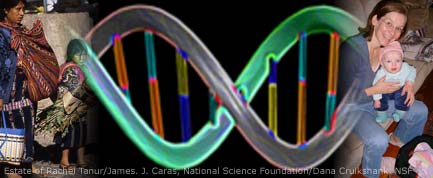Personalized Medicine: New Era of Individualized Treatment Arrives

A new era of personalized medicine has dawned, with medical therapies tailored to individual patients based on their own genes. The practice, in its infancy, is illustrated in a new case of individualized cancer treatment.
Two new studies, published in the April 20 issue of the Journal of the American Medical Association, document situations in which sequencing a patient's entire genome revealed crucial information about that person's cancer, and in one case, led doctors to choose a specific therapy that sent the cancer into remission.
"These cases of personalized genomic medicine are just some of the first examples of what will likely be commonplace in the near future," Boris Pasche, of the University of Alabama in Birmingham, and Devin Absher, of the HudsonAlpha Institute for Biotechnology in Alabama, write in an editorial that accompanies the papers.
However, sequencing a person's genome is still too expensive for such screenings to be done routinely, the researchers say — it costs about $20,000 to sequence a genome, and for cancer cases, researchers need to sequence the genomes of the cancer cells as well as the healthy cells (so that would be $40,000 a person).
In addition, right now, scientists don't know what to do with most of the information they get from a whole-genome sequence. "The vast majority of the information we get is pretty much uninterpretable," said study researcher Dr. Timothy Ley, a profession of oncology at Washington University. Most of the genetic alternations associated with cancer have yet to be discovered, he said. But that will change once more people have their genomes sequenced, Ley said. Other obstacles to the implementation of personalized medicine include concerns over patient privacy and struggles over how to best communicate information to patients regarding their DNA.
The new studies provide a view of how personalized medicine might work.
Unique genome, tailored treatment
Sign up for the Live Science daily newsletter now
Get the world’s most fascinating discoveries delivered straight to your inbox.
The first study describes a 39-year-old woman with leukemia who was scheduled to have a stem cell transplant. Her odds of survival from the transplant were less than 15 percent. But after having her genome sequenced, the researchers discovered she had a genetic mutation that meant her cancer would be responsive to a type of chemotherapy, which has a survival rate of 70 percent. After receiving the chemotherapy, the woman's cancer is now in remission.
The second study documents the case of a 42-year-old woman who died of breast and ovarian cancer. She developed breast cancer at the age of 37, leading the researchers to believe she had a genetic predisposition to the cancer. But genetic tests for the BRCA1 and BRCA2 genes, which have been linked with an increased risk of breast and ovarian cancers, revealed she didn't have either mutation.
Full genome sequencing, however, revealed she had a mutation in a gene called TP53, which suppresses tumor formation. Even though the researchers were not able to save the patient's life, this information will help her family. The woman had three children, who will have a very high risk of cancer if they inherited the mutation. The children can receive genetic testing to find out if they have the mutation, and regular cancer screenings. That way they could possibly catch any cancers at an earlier, and, hopefully, more treatable, stage.
The future
"We are beginning to see how genome sequencing can make a real difference in the lives of cancer patients and their families," said senior author Richard K. Wilson, director of Washington University's Genome Institute and a leader in the field of cancer genome sequencing. "Both studies underscore the value of whole-genome sequencing as a diagnostic tool."
Sequencing the whole genome identified changes to the patient's DNA that would not have shown up on standardized genetic tests, the researchers said.
As the cost of whole-genome sequencing continues to drop, the researchers say they expect that it will become the standard method by which scientists search for rare cancer mutations.
Pass it on: We are starting to see examples of how personalized medicine will work for cancer.
Follow MyHealthNewsDaily staff writer Rachael Rettner on Twitter @RachaelRettner.
This story was provided by MyHealthNewsDaily, a sister site to LiveScience.

Rachael is a Live Science contributor, and was a former channel editor and senior writer for Live Science between 2010 and 2022. She has a master's degree in journalism from New York University's Science, Health and Environmental Reporting Program. She also holds a B.S. in molecular biology and an M.S. in biology from the University of California, San Diego. Her work has appeared in Scienceline, The Washington Post and Scientific American.










